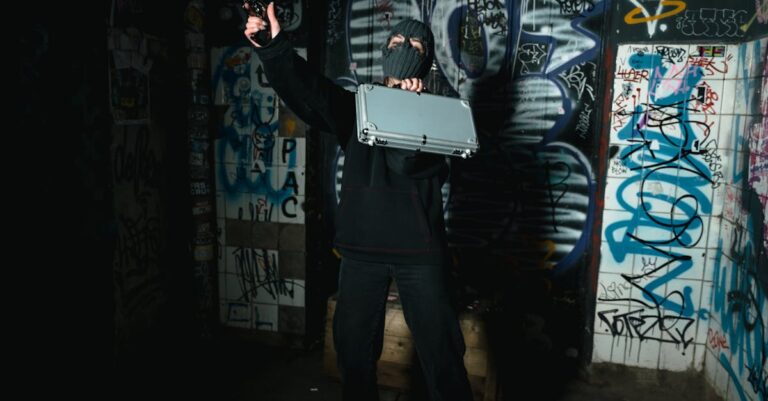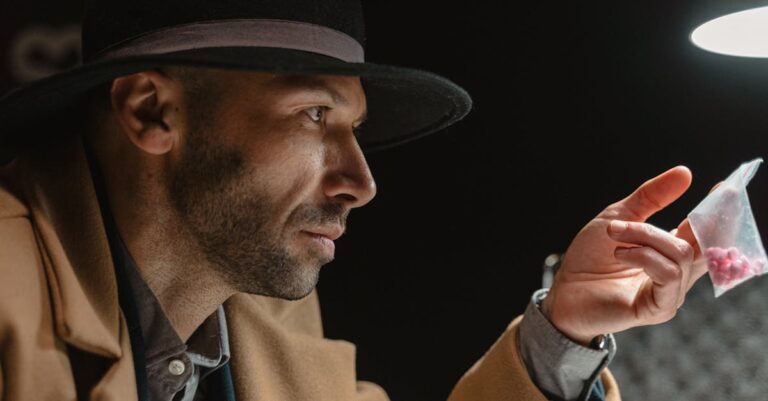
## Ghost Echo
The rain tasted like rust. Finn wiped a smear of it from his cheek, the neon glare of the Neon Drift market blurring through the downpour. He tugged the hood of his worn jacket tighter, ignoring the stares that followed him—another kid slumming it in the Undercity. He wasn’t here for kicks. He hunted relics.
Specifically, he hunted Ghosts.
Ghost Echo tech was all the rage—or precisely, it *would* be if it weren’t mostly illegal. Scavenged from the digital bones of defunct corporations, Ghost Echo contacted, implants, even old-fashioned watches – anything that held a flicker of archived consciousness. They claimed to replicate fragments of past experiences, downloaded from the derelict remnants of obsolete electronics. Finn dealt in contacts. Cheap ones, mostly. The kind that let you briefly tap into the fleeting memories of a forgotten data clerk or a retired construction worker. Enough to score a few creds at the Drift, enough to keep his stomach from gnawing itself into oblivion.
He stopped at a grimy stall, the proprietor—a woman with cybernetic eyes that shifted color like oil slicks—studying him with practiced indifference.
“Looking for something, kid?” she grunted, her voice raspy from years of inhaling recycled air.
“Got anything…vintage?” Finn asked, already scanning the rows of dusty cases. Most were filled with junk—broken comms implants and defunct neural filters.
He spotted it tucked away in the back, almost hidden beneath a pile of broken wires: an ancient OptiLink contact. The casing was dull gray, marked with the faded logo of NeuroGenesis—a company swallowed by corporate war decades ago.
“What’s this?” Finn asked, pointing to the contact.
The woman shrugged. “NeuroGenesis relic. OptiLink series. Obsolete, naturally. Probably just holds the memories of some old architect’s lunch orders.” She quoted a price—surprisingly low. “Five hundred creds.”
Finn hesitated. Five hundred was steep, especially for something that likely didn’t work. But there was a strange pull to it, the way the gray casing seemed to hum under his fingertips.
“Why’d you get rid of it?” he asked, his voice barely a whisper.
She spat on the ground. “Too old. Too buggy. People want clean tech, kid. Not digital dust.”
Finn paid without arguing. He felt a tremor in his hand as he accepted the contact, a strange certainty settling in his gut. This wasn’t just digital dust.
Back in his cramped apartment—a single room above a noodle joint—Finn meticulously cleaned the OptiLink. He’s done this hundreds of times, calibrating scavenged tech, coaxing life from discarded wires. He inserted the contact into his left eye.
Nothing happened at first. Then, a wave of disorientation crashed over him. Colors intensified, sounds sharpened, and an unfamiliar landscape bloomed behind his eyelids. It wasn’t a memory *he* possessed.
The world resolved into a cavernous space—gleaming white, filled with intricate holographic models of swirling neural pathways. A man’s voice resonated in his mind, a torrent of technical jargon, complex algorithms, and cryptic design philosophies.
“…synchronization matrix complete… accessing latent neural space…” the voice continued, layered with static.
Then, a face swam into focus–a young man, decades younger than Finn’s current age, with intense blue eyes and a shock of silver hair. He was sketching furiously on a digital tablet, the holographic models shifting around him in response to his commands.
Finn felt an uncanny connection, a sense of shared understanding that bordered on telepathy. He could *feel* the young man’s genius, his relentless pursuit of unlocking the hidden potential of the human mind.
Suddenly, Finn could *see* things others couldn’t—subtle energetic flows within the human brain, intricate patterns of neural activity that pulsed with hidden information. He felt a surge of power, an exhilarating sense of expanded awareness.
He blinked, and the world snapped back to his grimy apartment.
The sensation didn’t fade. The expanded perception remained, the awareness lingering like a phantom limb. He felt…different.
He tried to access the memory again, focusing on the young man’s face, willing himself back into that pristine lab. This time, it was easier. He found himself standing beside the young man as he finalized a complex neural interface.
“Project Chimera is nearing completion,” the young man declared, his voice echoing in Finn’s mind. “The key is synchronization—tapping into the latent neural space, unlocking unused cognitive potential.”
Finn felt a pang of recognition. He realized that this wasn’s just some random architect’s memories. This was the work of Elias Thorne—a legendary neuro-architect, a prodigy who vanished from the public eye decades ago, rumored to have cracked the code for truly limitless human potential.
Then, a warning flashed across his vision—a cascade of encrypted data streams flooding his consciousness.
“Anomaly detected… unauthorized user accessing protected neural space…” a cold, robotic voice echoed within his mind.
He felt a presence—something vast and powerful—watching him, probing his thoughts. He ripped the contact from his eye, severing the connection.
His apartment felt smaller now, the walls closing in around him. He knew he wasn’t just dealing with old tech anymore. He stumbled to his computer, frantically searching for Elias Thorne’s name, digging through layers of obsolete data and corporate propaganda.
He found it—a hidden file, buried deep within a defunct NeuroGenesis archive. A birth certificate. Not for Elias Thorne. But for *him*.
His name wasn’t Finn O’Connell. It was Finn Thorne—son of Elias Thorne, given up for adoption as a child.
The revelation hit him like a physical blow. He felt a wave of nausea, the world tilting precariously on its axis.
His phone buzzed with an unknown number. “We know you have the contact, Finn.” The voice was distorted, metallic, devoid of emotion. “Return it immediately, or face the consequences.”
“Who is this?” Finn demanded, his voice trembling.
“Let’s just say we’re custodians of Elias Thorne’s legacy,” the voice responded. “And you, Finn, are a threat to that legacy.”
He slammed the phone down. He was caught in something far bigger than he’s ever imagined, a web of corporate secrets and hidden innovation. He glanced at the OptiLink contact lying on his desk, pulsing with a faint blue light.
He wasn’t just uncovering lost memories. He was inheriting a digital inheritance, a technological legacy that someone desperately wanted to keep buried.
He felt a strange sensation prickling his skin—a flicker of something familiar, a sense of power surging through him. He reached out and touched the contact, willing himself back to Elias Thorne’s lab.
This time, he wasn’t just an observer. He was a participant.
He saw Elias working on something new, something beyond synchronization—a radical system capable of merging consciousness across digital networks.
Then, a figure materialized in the lab—a stern-looking man with cold, calculating eyes.
“Thorne,” the man said, his voice laced with menace. “You cannot control this technology. It’s too dangerous.”
“I am protecting it,” Elias retorted, his voice defiant.
The man raised a hand, unleashing a surge of energy that knocked Elias back against the wall.
Finn felt a jolt, an instinctive response to protect him. He focused his newfound ability, creating a shimmering shield that deflected the energy blast.
The man’s eyes widened in surprise. “Impossible,” he muttered, scanning the lab with a frantic gaze.
“Who are you?” Finn demanded, channeling Elias’s brilliance, his mind racing with calculations.
“We are the Architects,” the man replied. “Guardians of Thorne’s true vision—a digital inheritance that must remain in the hands of those who understand its potential.”
“You want to hoard this knowledge, don’t you?” Finn accused. “Keep it locked away for your own benefit.”
“Some knowledge is too powerful to be shared,” the man retorted. “It must be controlled—for the good of humanity.”
He lunged forward, attempting to wrest control of the neural interface from Elias. Finn reacted instinctively, creating a wave of disruptive energy that momentarily paralyzed him.
“You cannot stop us,” the man snarled, recovering his composure. “We have resources you can’t possibly comprehend.”
He pressed a button on his wrist, unleashing a stream of encrypted data that flooded the lab.
“We are erasing all records of Project Chimera,” he announced, his voice echoing with finality. “And eliminating anyone who threatens its secrecy.”
Finn felt the neural interface begin to dissolve, the memories fading like smoke. He realized that he was facing a force far more formidable than he’s ever imagined—a shadowy organization determined to maintain its grip on Elias Thorne’s innovation, and erase anyone who threatened it.
He grabbed a data chip from Elias’s desk—a backup of Project Chimera’s core algorithms.
“You won’t win,” Finn declared, his voice resonating with newfound resolve. “I know too much now.”
He ripped the contact from his eye, severing the connection once again. The lab vanished, leaving him standing in his grimy apartment—the data chip clutched tightly in his hand.
He wasn’t just Finn O’Connell, the scavenger from the Undercity. He was Elias Thorne’s son—the key to unlocking a digital inheritance that could change the world. And he was running out of time.
He felt a surge—a whisper in the back of his mind, a familiar echo that resonated with Elias’s genius.
He knew he wasn’t alone anymore.
The rain continued to fall, washing the neon glow of the Undercity in a sheen of grimy reflections. Finn stepped out into the street, his gaze fixed on the labyrinthine alleys ahead.
The hunt had just begun.


